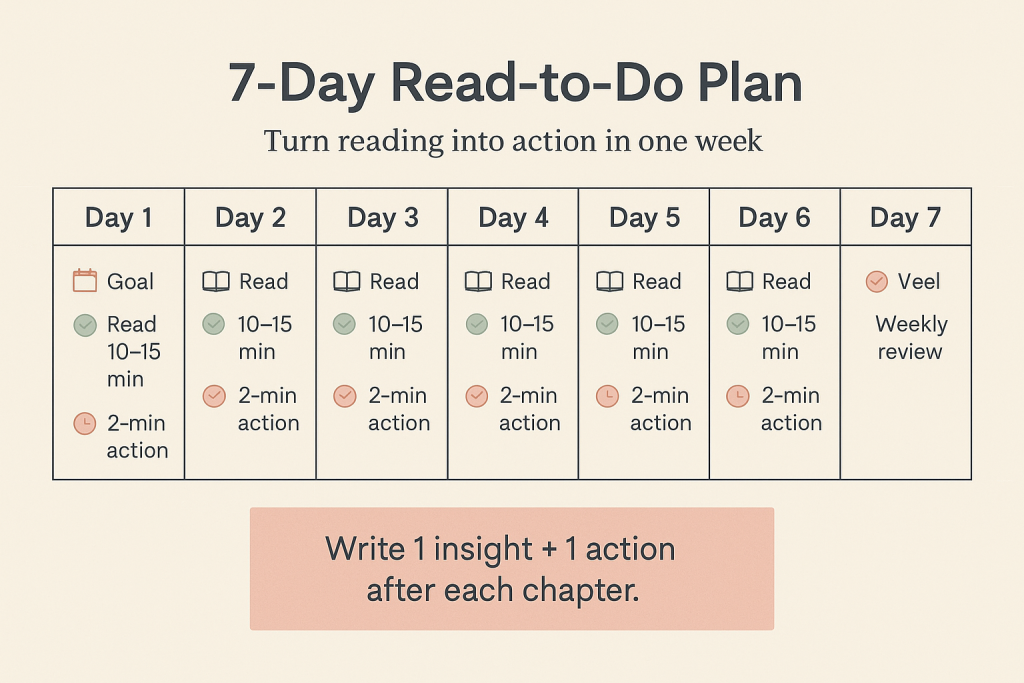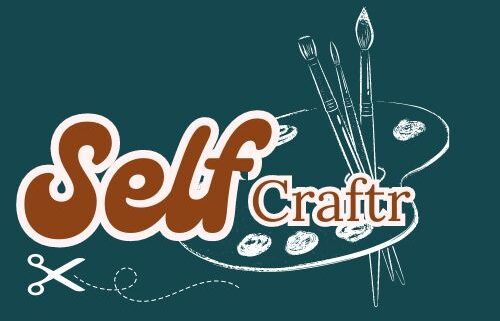Self Improvement Books for Women with Action Steps
We may earn a commission for purchases made using our links. Please see our disclosure to learn more.
You want real change—not another motivational high that fades by Monday. The right self improvement books for women can feel like a mentor in your bag: practical, kind, and a little pushy when you need it. Whether you’re rebuilding confidence, setting boundaries, or finally making habits stick, this guide meets you where you are—busy schedule and all. You’ll see where each book shines, who it’s for, and the smallest step to try today, so momentum starts immediately. In this guide, you’ll get clear picks by goal, bite-size action steps, a simple 7-day read-to-do plan, and easy check-ins that turn reading into real results.
Why a women-focused list helps
Your challenges might include people-pleasing, invisible labor, perfection pressure, or career ceilings. Books that speak to these realities land deeper—and move you faster—from insight to action. Expect tools for boundary setting, confidence, work-life balance, and sustainable self-care.
How to choose the right book (fast)
Ask yourself:
- What do I want to change in 30 days? (habits, boundaries, confidence, career)
- How much time do I have? (short chapters vs deep dives)
- What format fits my life? (paperback, Kindle, audiobook on commutes)
- What one behavior will I try first after chapter one?
Habit building that actually sticks
Pick: Atomic Habits — James Clear
Small, consistent changes beat big, heroic efforts. Clear’s 4-step system shows you how to make good habits obvious and satisfying—and bad ones invisible and annoying. (320 pages.)
Try this: Attach a tiny habit to something you already do: After I brew coffee, I’ll write one line in my journal.
Boundaries without guilt
Pick: Set Boundaries, Find Peace — Nedra Glover Tawwab
If “no” catches in your throat, this one’s a lifeline. You’ll learn scripts, limits, and how to hold them—kindly. (304 pages.)
Try this: Use the CALM script—Clear, Assertive, Loving, Minimal. One sentence beats an essay.
Courage over perfection
Pick: The Gifts of Imperfection (10th Anniversary Edition) — Brené Brown
Drop the “never enough.” Brown’s 10 guideposts reframe self-worth and give permission to live brave over perfect. (208 pages.)
Try this: Choose a “guidepost of the week.” Place a sticky note where you’ll see it daily.

Ending self-sabotage
Pick: The Mountain Is You — Brianna Wiest
If you start strong and stall out, Wiest helps you spot the protective patterns underneath and replace them with skills. (Approx. 248 pages.)
Try this: When you notice avoidance, ask: What need is this behavior trying to meet—and how can I meet it better?
Saying “yes” to a braver year
Pick: Year of Yes — Shonda Rhimes
A joyful nudge to say yes to growth, stage fright, and self-trust—on your terms. (352 pages.)
Try this: Pick one fear to say a “micro-yes” to this week—send the pitch, book the class, ask for feedback.
Quick picks by goal
- Confidence boost: Gifts of Imperfection, Year of Yes
- Daily discipline: Atomic Habits
- Relationships & burnout: Set Boundaries, Find Peace
- Stopping the spiral: The Mountain Is You
A 7-day read-to-do plan
- Day 1: Choose your book + write your 30-day goal in one sentence.
- Day 2–5: Read 10–15 minutes/day. End each session by writing one 2-minute action.
- Day 6: Do a “habit audit”—what helped, what got in the way.
- Day 7: Share one takeaway with a friend; accountability doubles follow-through.
Build a reading routine when life is full
- Attach to anchors: Commute, lunch break, bedtime wind-down.
- Lower the bar (on purpose): “Read 2 pages” is a win; momentum comes from starting.
- Make it visible: Keep your current book in plain sight—bag, nightstand, counter.
- Use cues: Same chair, same mug, same playlist = faster habit entry.
- Celebrate tiny: Check off a box or add a sticker; the brain loves closure.
Journal prompts to pair with each chapter
- What surprised me today—and why?
- What’s one sentence I want to remember?
- What’s my 2-minute experiment before tomorrow?
- Where did I resist—and what felt scary underneath?
Pair these with a simple collage journal to keep it creative. Try these vision-board alternatives and collage journal ideas to make reflection enjoyable and quick.
Research-backed reasons books work
- A 2018 meta-analysis of randomized trials found that bibliotherapy (guided self-help via books) was effective for depression and anxiety in youth—evidence that reading with purpose can be therapeutic and scalable. The mechanism (structured cognitive-behavioral skills applied via reading) maps well to grown-up self-help, too.
- A 2019 meta-analysis of randomized controlled trials reported medium effects of self-compassion interventions on depression, anxiety, and stress—skills many popular books teach in accessible ways.

Make what you read unforgettable
- 2-line summary rule: After each chapter, write one insight and one action.
- Habit stacking: Pair your new behavior with something you already do daily.
- Weekly review: 10 minutes on Sundays: wins, blocks, next tiny step.
- Say it out loud: Explain the idea to a friend; teaching cements learning.
Mistakes to avoid
- Too many books, not enough reps. One book, one habit at a time.
- Seeking perfect advice. Use 80% that fits; skip the rest.
- All-or-nothing thinking. Two minutes counts.
Formats to fit your life (including audiobooks)
Commuting? Go audiobook. Eye-strain? Try e-readers with larger fonts. If you’re listening, jot a 1-sentence action afterward; some studies find listening comprehension can be comparable to reading for certain nonfiction tasks, while others suggest active reading can edge out passive listening for deeper learning—so pair audio with quick notes for best results.
Budget-friendly reading: libraries, swaps, and smart buys
- Library first: Place holds; many offer free audiobooks and e-books.
- Used & swaps: Thrift stores, local swaps, Little Free Libraries.
- Sample before you buy: Read a preview; commit only if the first chapter resonates.
- One-in, one-out: Donate a finished book to keep your shelf (and mind) tidy.
Diverse voices & intersectional growth
Personal development gets richer when you include voices across cultures, ages, and identities. As you build your list, notice who’s missing—then add authors whose lived experiences stretch your perspective. Confidence, leadership, and mindset skills travel better when they’re grounded in diverse stories.
If you’re not a “book person” (yet)
- Try summaries or podcasts to sample ideas.
- Start with memoir-style (like Year of Yes) if you crave story.
- Read in pairs with a friend for built-in accountability.
- Mix mediums: one audiobook walk + one 5-minute paper read at night.
Amazon Top 5: mini-reviews + who it’s for
Product info below references public product listings.
1) Atomic Habits — James Clear
What it is: A playbook for tiny, compounding changes. (320 pp.)
Features: 4-law habit model, environment design, habit tracking.
Pros: Short chapters; immediately actionable.
Cons: If you want deep psychology theory, it’s light.
Best for: Busy women who need simple, repeatable systems.
2) Set Boundaries, Find Peace — Nedra Glover Tawwab
What it is: Scripts + strategies to protect time, energy, and relationships. (304 pp.)
Features: Real-world scenarios, communication templates.
Pros: Practical language; compassionate tone.
Cons: Repetitive for advanced readers.
Best for: People-pleasers, caregivers, and anyone navigating family/work dynamics.
3) The Gifts of Imperfection (10th Anniversary Edition) — Brené Brown
What it is: Courage-building guide to living wholeheartedly. (208 pp.)
Features: Ten guideposts; new tools in the anniversary edition.
Pros: Warm, research-informed, deeply relatable.
Cons: More reflective than step-by-step.
Best for: Perfectionists, high achievers, creatives.
4) The Mountain Is You — Brianna Wiest
What it is: Understand and upgrade the patterns behind self-sabotage. (~248 pp.)
Features: Emotional pattern mapping, self-trust practices.
Pros: Direct, validating, quotable.
Cons: Less academic; more reflective essays.
Best for: When you know what to do but can’t make yourself do it.
5) Year of Yes — Shonda Rhimes
What it is: A memoir-playbook for saying yes to courage and joy. (352 pp.)
Features: Story-driven lessons, humor, public speaking confidence.
Pros: Inspiring, fun, inclusive voice.
Cons: Memoir style vs strict workbook.
Best for: A motivating reset when life feels small.
Comparison table
| Model | Key Spec(s) | Warranty | Approx Price/Tier* | Best For |
| Atomic Habits | 320 pp; habit framework; multiple formats | N/A | Budget–Mid (paperback/Kindle) | Daily discipline & routines |
| Set Boundaries, Find Peace | 304 pp; scripts & scenarios | N/A | Budget–Mid | Relationships & burnout |
| Gifts of Imperfection | 208 pp; 10 guideposts; updated tools | N/A | Budget–Mid | Confidence & self-acceptance |
| The Mountain Is You | ~248 pp; self-sabotage patterns | N/A | Budget–Mid | Emotional self-mastery |
| Year of Yes | 352 pp; story-driven motivation | N/A | Budget–Mid | Boldness & joy |
*Prices fluctuate by format and seller.

Who these books are—and aren’t—for
They’re for you if you want practical tools, gentle accountability, and tiny steps you can keep. They won’t replace therapy in a crisis—but they can support healing, growth, and everyday courage alongside professional care (the self-compassion evidence above is a good signpost).
FAQs
Do self improvement books for women really help?
When you read with intent and apply steps, yes. Bibliotherapy research shows self-help can reduce anxiety and depression versus controls in randomized studies, and self-compassion training shows medium benefits on mood and stress.
How do I pick between two great options?
Choose the book that solves your nearest problem. If you need energy to start, try Atomic Habits. If your schedule is packed with other people’s priorities, start with Set Boundaries.
Can I use audiobooks and still learn well?
Yes—especially for commuting or walking. Evidence suggests listening can deliver comparable comprehension to reading in some contexts; for deeper learning, pair audio with quick notes.
What if a book triggers tough feelings?
Pause and care for yourself. Consider journaling, talking to a friend, or seeking a licensed therapist. Books complement—not replace—professional care (supported by the self-compassion meta-analysis).
How do I actually stick with changes?
Start tiny, stack habits onto routines, track wins, and review weekly. The “two-minute rule” from Atomic Habits keeps momentum going.
Conclusion
Real change doesn’t demand a personality transplant; it asks for small, honest steps. Pick one chapter, one practice, and one place in your day to put it. In a month, “future you” will thank “today you” for getting started. You’ve got this—and you don’t have to do it alone.




